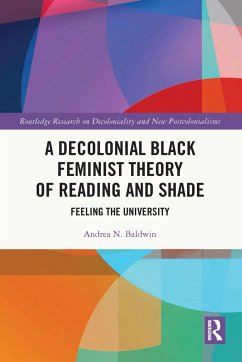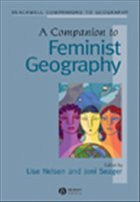
Writing Intimacy into Feminist Geography
Versandkostenfrei!
Versandfertig in 1-2 Wochen
190,99 €
inkl. MwSt.
Weitere Ausgaben:

PAYBACK Punkte
95 °P sammeln!
Conceptually, intimacy is emerging across various disciplines as a topic worthy of investigation, yet it has yet to be fully articulated in feminist geography, or geography more widely. This book expands the horizons of how intimacy is understood and approached in feminist geographic work. It argues that engaging with how to access and work with intimacy ethically and politically, in research design, in the field and in the write-up enriches research, and that organizing such individual work through the theme of intimacy can deepen the understandings feminists have of experience, knowledge, an...
Conceptually, intimacy is emerging across various disciplines as a topic worthy of investigation, yet it has yet to be fully articulated in feminist geography, or geography more widely. This book expands the horizons of how intimacy is understood and approached in feminist geographic work. It argues that engaging with how to access and work with intimacy ethically and politically, in research design, in the field and in the write-up enriches research, and that organizing such individual work through the theme of intimacy can deepen the understandings feminists have of experience, knowledge, and power, and in their relationships to each other.













